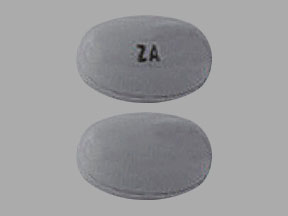
Zemplar Coupons & Savings Card – Discount Prices from $80.98
Brand for: Paricalcitol
My prescription
Edit
1MCG, Paricalcitol (90 Capsules)
Select pharmacy

CVS
$80.98
COUPON PRICE
Albertsons
$92.92
COUPON PRICE
Walgreens
$99.18
COUPON PRICE
Walmart
$119.07
COUPON PRICEZemplar savings card
Show this card to your pharmacist
CVS
$80.98
BIN
ID
PCN
GRP
011867
LH9242D596
HT
LABH001
Powered by
Related vitamin D analogues prescriptions
More prescriptions for kidney disease
Related vitamin D analogues prescriptions
More prescriptions for kidney disease
Price history for Zemplar (brand) & Paricalcitol (generic)
90 Capsules, 1MCG
Average retail price for Zemplar
Average retail price for Paricalcitol
Average SaveHealth price for Paricalcitol
Our price history data is based on aggregated prescription data collected from participating pharmacies in America. Our prescription data updates daily to reflect the latest price changes. If you notice a missing data point, it means there wasn't sufficient data available to generate a monetary value for that date.
Over the last 12 months, the average discount price of Zemplar is $113.91 using the SaveHealth savings card. That's an average savings of 75.71% on Zemplar with our discount card.
*Retail prices are based on pharmacy claims data, and may not be accurate when we don't have enough claims.
Zemplar (Paricalcitol) dosage forms
Dosage Quantity Price from Per unit 1MCG 90 Capsules $81.34 $0.90 1MCG 30 Capsules $36.06 $1.20 2MCG 30 Capsules $54.17 $1.81
| Dosage | Quantity | Price from | Per unit |
|---|---|---|---|
| 1MCG | 90 Capsules | $81.34 | $0.90 |
| 1MCG | 30 Capsules | $36.06 | $1.20 |
| 2MCG | 30 Capsules | $54.17 | $1.81 |
What is the drug Paricalcitol used for?
Paricalcitol is used to treat and prevent secondary hyperparathyroidism in patients with chronic kidney disease.
Does paricalcitol increase calcium?
Paricalcitol is a medication used to treat and prevent secondary hyperparathyroidism, particularly in patients with chronic kidney disease. It is a synthetic form of vitamin D. While paricalcitol is designed to help manage parathyroid hormone levels without significantly increasing calcium levels, it can still potentially cause an increase in calcium levels in some patients. Regular monitoring of calcium and other related blood levels is important when using this medication.
What is the mechanism of action of Paricalcitol?
Paricalcitol is a synthetic vitamin D analog. Its mechanism of action involves binding to the vitamin D receptor (VDR) in the body, which then interacts with DNA to modulate the transcription of vitamin D-responsive genes. This action helps to reduce parathyroid hormone (PTH) levels, thereby managing secondary hyperparathyroidism, particularly in patients with chronic kidney disease.
How much does a paricalcitol injection cost?
The cost of a paricalcitol injection can vary widely depending on factors such as the pharmacy, location, insurance coverage, and dosage required. It is recommended to check with local pharmacies or healthcare providers for the most accurate and up-to-date pricing information. Additionally, insurance plans may cover part or all of the cost, so consulting with the insurance provider is advisable.
Is paricalcitol a vitamin D3?
Paricalcitol is not vitamin D3. It is a synthetic analog of vitamin D used to treat and prevent secondary hyperparathyroidism, particularly in patients with chronic kidney disease.
